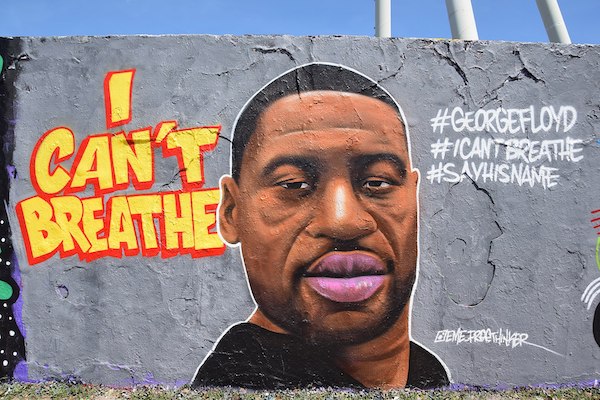In the Bible, breathing is sacred. Respiration is an act of experiencing God. God exhales and we come alive as divine oxygen fills our bodies. The Book of Numbers calls God “the God who gives breath” (Numbers 16:22; 27:16).
This sacred vision of breath is found throughout the Bible.
Genesis pictures our creation as a flow of breath from God into our bodies: “Then the Lord God formed a human from the dust of the ground and breathed into his nostrils the breath of life, and the human became a living being” (Genesis 2:7).
The suffering Job affirms this respiratory spirituality: “Life within me [is] the breath of God in my nostrils… The Spirit of God has made me; the breath of the Almighty gives me life” (Job 27:3; 33:4).
The prophet Isaiah imbeds our breath within its cosmic context: “The Creator of the heavens, who stretches them out, who spreads out the earth with all that springs from it…gives breath to its people, and life to those who walk on it” (Isaiah 42:5).
The prophet Ezekiel pictures resurrection as new breath: “This is what the Sovereign Lord says to these bones: I will make breath enter you, and you will come to life” (Ezekiel 37:5).
Jesus re-enacts this primal creation by breathing on his disciples: “He breathed on them and said, ‘Receive the Holy Spirit’” (John 20:21).
Paul in Athens summarizes the Bible’s spirituality of breathing: “[The Creator] himself gives everyone life and breath and everything else…. He is not far from any one of us. For in him we live and move and exist” (Acts 17:25, 27-28).
This sacred understanding of breath is why the Bible’s songbook concludes, “Let everything that has breath praise the Lord” (Psalm 150:6).
The implications are both spiritual and political.
If you are breathing, you are inhaling God’s gift into your body, which then rushes through your blood and fills your being with life. To breathe is to experience God.
Breath is the pacemaker of divine presence in every moment of our lives. This most ordinary movement that we do with our bodies is a reminder – is an *experience* – of God. In many ways, breathing is our most profound act and most vital practice as creatures: receiving what is from beyond ourselves into our bodies and then releasing it back beyond ourselves for others every five seconds.
This divine rhythm of respiration is an in-spiring dance of inhale and exhale, transcendence and immanence, spirituality and physiology, self and other, life for life.
But breath is also political.
To take the breath of another is to steal the gift of God and to strangle God’s will for humanity. It is to stand in the place of the Creator, with the breath God has given, and deny this life to another.
King Zedekia, whose name means “The Lord Is Just,” understood this truth: “As surely as the Lord lives, who has given us breath, I will neither kill you nor hand you over to those who want to kill you” (Jeremiah 38:16). To do otherwise would be to defy that “God has given *us* breath” and thus to deny that breath is no man’s possession but the gift of God for all.
From this perspective, “I can’t breathe” is the ultimate theological protest against human violence.
In the Bible, then, breathing is both spiritual practice and political protest. To breathe aright is to welcome God, to receive God, to inhale God’s life into our bodies – to open our selves to transcendence as physical, fragile creatures. And thus to breathe aright is to remember that my breath is our breath because it is God’s breath for all of us – to embrace the other in the community of creation.
Our bodies are temples, the most sacred sites of spiritual meaning and experience in the world. Surprising to some, the Bible doesn’t invite us to look beyond our bodies to experience God. The Bible invites us to look within our bodies and between our bodies to experience God.
Disembodied spirituality impoverishes ourselves and endangers others. Our bodies are sacred organs of divine generosity and hospitality. To breathe aright is spiritual and political therapy. Every breath we take can be an act of healing for ourselves and reconciliation with our neighbors — here and now, in every moment of our lives, never more intimate and never more transcendent.
Our bodies are these quivering temples, these utterly ordinary nexus points of the eternal and temporary, the self and others, the spiritual and political.
Breathe today. Breathe intentionally and deeply.
Breathe for your self. Breathe for your neighbors.
Inhale with joy, “I can breathe!” Exhale with justice, “I will never make my neighbor say, ‘I can’t breathe!’”
Counterintuitively, breathing is the solution to our spiritual poverty and political violence. This simplest act that costs us nothing can change everything. Breathing is here and now, free and for all, God’s gift and God’s claim for each one of us.
“Let everything that has breath praise the Lord.”





